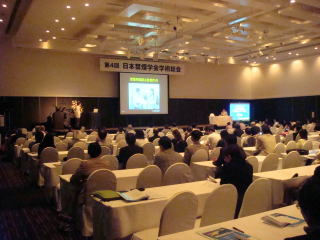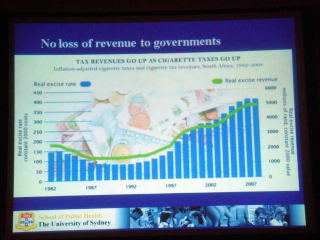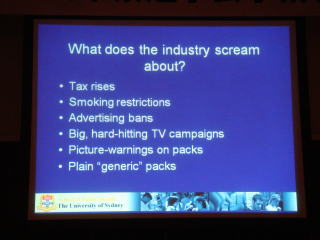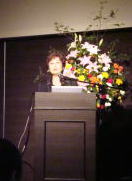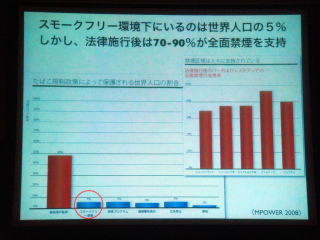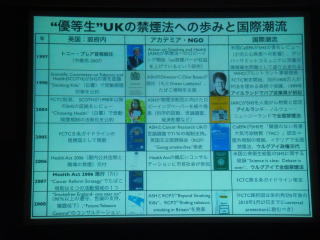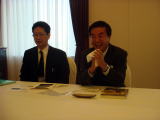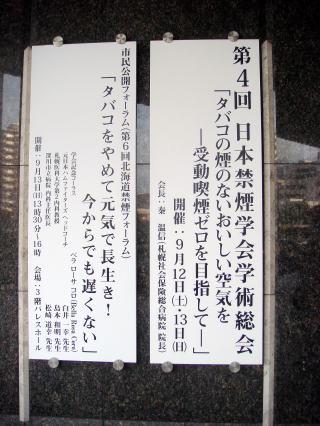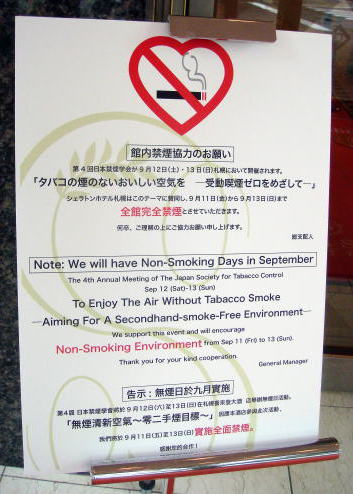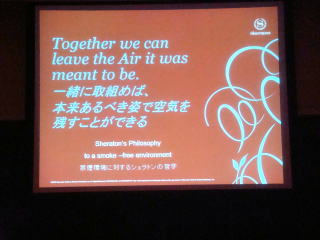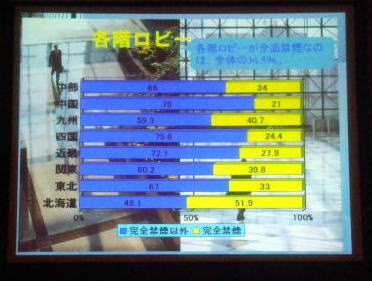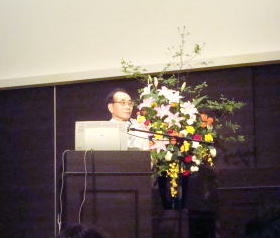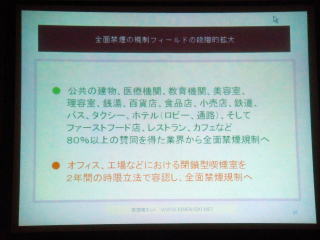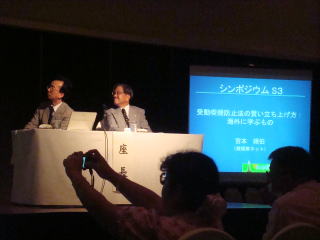@The Fourth Annual Meeting of Japan Society for Tobacco Control
2009Nú{Öwïï
@
The Fourth Annual Meeting of Japan Society for Tobacco Control
@was held in Sapporo, Hokkaido in September, 2009.
@
Professor Simon Chapman, Public Health, University of Sydney showed that there will be no loss for revenue
to governments when we increase tobacco taxes.
Dr. Yumiko Mochizuki, National Cancer Center Research Institute reported that the only 5% of the world population
are living in spaces free from tobacco smoke. She studied the process of UK towards smoke-free society.
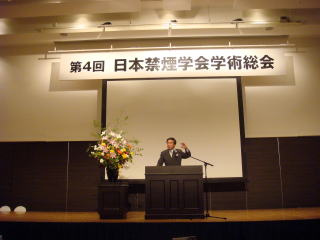
Governor of Kanagawa Prefecture, Shigefumi Matsuzawa explained the process how to establish the ordinance in Kanagawa.
He again stressed the need to provide a separate smoking room in public places and the Kanagawa will assist owners to build
a smoking room in restaurants and other premises. He spoke with fervent and he told us he expects the new anti-smoking law
to be made in other prefectures in the same manner.
@Kanagawa Prefecture officially approved the employees of firms to work in the spaces with full of harmful smoke at
the newly established anti-smoke law.
(L) The sign board of General Meeting of the Society placed near the main entrance of Sheraton Sapporo.
(R) The Sheraton Sapporo was temporarily smoke-free in all restaurants, convention hall, lobbies, guest rooms
and other facilities during September 11 and 13. Except during this convention period, the rate of smoking
guest rooms in Sheraton Sapporo is 40% of total.
Sheraton philosophy
Mr. Richard Suter, a manager of Sapporo Sheraton reported that, in North America, the 81% of customers believe
one reason why hotels should be smoke-free is to create a healthier environment for its employees. He added
that the 40% rate of present smoking rooms in Sapporo Sheraton should be reduced to zero, to aim to be smoke free
by the end of 2012.
@Smoke-free hotels in Japan
The smoke-free ratio of lobbies of hotel and Rykan in Japan. The yellow belt shows
a percentage of smoke-free spaces in the lobby. It ranges from 21% to 52%.
Professor Masako Kitada, Sapporo Gakuin University, reported the cigarette smoking and smoking ban in the premises
of hospitality industries in Japan. The report by Prof. Kitada showed a carpet smoking ban in hotels of Japan is rather rare,
and the majority of hotel and 'ryokan' ignores the measures for second-hand smoke inside of the buildings. Ten percent
of hotel managers approves for the penalty in the anti-smoke law, and 30 per cent of them supports a smoking ban by
the ordinance.
Dr. Junhaku Miyamoto, a director of 'smokefree.jpn.com.' spoke on the subject about the way how to establish a superb
anti-smoking ordinance. He warned that creating smoking room in public indoor spaces is not the solution to prevent
health hazards by involuntary smoking, and it should be abandoned. The title: 'What is the best form of an anti-smoking
law to create a smoke-free society in Japan?'.
2009.09.12 Junhaku Miyamoto,M.D.,PhD.
@Annual Meeting of Japan Society for Tobacco Control 2010
@Herald Tribune InternationalFJapan must move faster on anti-smoking laws.@
@ú{ê
2009Nú{ÖwïïFpêÅ
·M@ãwm {{
This Web site is link-free.
The article was written in September 2009, by Junhaku Miyamoto, M.D., PhD.
Information was added in September 2016.
